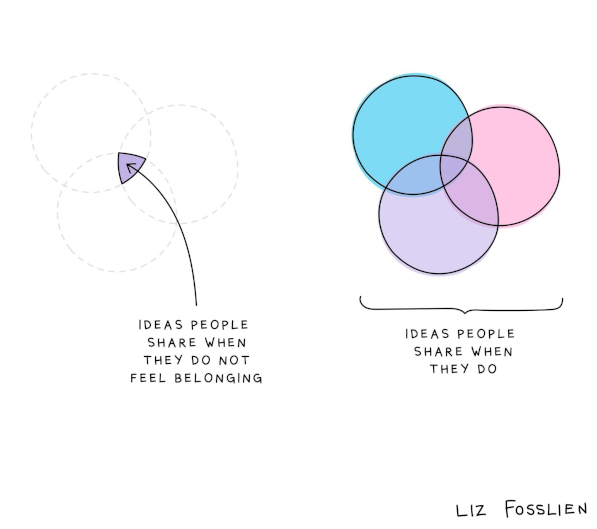[Photo by Headway on Unsplash]
Good morning,
We spent our weekend with Wisdom of Insecurity by Alan Watts, the writer and philosopher who interpreted and popularised Zen Buddhism for a Western audience through the late fifties and sixties until his death in 1973. His influence continues to reverberate.
“Human desire tends to be insatiable. We are so anxious for pleasure that we can never get enough of it. We stimulate our sense organs until they become insensitive, so that if pleasure is to continue they must have stronger and stronger stimulants. In self-defence the body gets ill from the strain, but the brain wants to go on and on. The brain is in pursuit of happiness, and because the brain is much more concerned about the future than the present, it conceives happiness as the guarantee of an indefinitely long future of pleasures. Yet the brain also knows that it does not have an indefinitely long future, so that, to be happy, it must try to crowd all the pleasures of Paradise and eternity into the span of a few years.
“This is why modern civilization is in almost every respect a vicious circle. It is insatiably hungry because its way of life condemns it to perpetual frustration. As we have seen, the root of this frustration is that we live for the future, and the future is an abstraction, a rational inference from experience, which exists only for the brain. The ‘primary consciousness’, the basic mind which knows reality rather than ideas about it, does not know the future. It lives completely in the present, and perceives nothing more than what is at this moment. The ingenious brain, however, looks at that part of present experience called memory, and by studying it is able to make predictions. These predictions are, relatively, so accurate and reliable (e.g., ‘everyone will die’) that the future assumes a high degree of reality—so high that the present loses its value.
“But the future is still not here, and cannot become a part of experienced reality until it is present. Since what we know of the future is made up of purely abstract and logical elements—inferences, guesses, deductions—it cannot be eaten, felt, smelled, seen, heard, or otherwise enjoyed. To pursue it is to pursue a constantly retreating phantom, and the faster you chase it, the faster it runs ahead. This is why all the affairs of civilization are rushed, why hardly anyone enjoys what he has, and is forever seeking more and more. Happiness, then, will consist, not of solid and substantial realities, but of such abstract and superficial things as promises, hopes, and assurances.”
In this issue
- Create a sense of belonging
- Read, write, call
- Be Consistent
Have a great week!
Create a sense of belonging
In a recent essay in MIT Sloan Management Review, Liz Fosslien, head of content at Humu, and co-author No Hard Feelings: The Secret Power of Embracing Emotions at Work, points to some interesting data about Humu’s enterprise customers: “62% of employees have reported feeling overwhelmed by work responsibilities, and 32% have said they are emotionally drained.” Stress and burnout will accelerate what economists call “The Great Resignation,” people leaving organizations in the coming months.
One of the ways to reduce stress is by improving the connections within your team. When people don’t connect, communication plummets. She captures it using this simple Venn diagram.

“To create a sense of belonging for your people, be sure to recognize unique ideas or perspectives on the team, build stronger ties by setting up one-on-ones between team members who don’t often interact, and set up time for everyone to have fun together as a group. At Humu, we’ve designed and played team trivia, organized group check-ins where people share a personal challenge and accomplishment, and hosted virtual tea tastings. These activities bring teams closer and give people a way to get to know each other a bit better,” she writes.
Dig deeper
Read, write, call
The evolution of WFH and hybrid way of working are themes we are watching closely. That is why this piece on digital body language by Erica Dhawan, an Indian-American writer and entrepreneur, got our attention. “When the internet came along, no one was given an instruction manual for how to communicate—how to read signals and cues—in a digitized world. But the new cues and signals we send make up the subtext of our messages in digital communication. They are our digital body language. Everything from our punctuation to our response times to our video backgrounds are signals of trust, respect and even confidence. Yet we have all just picked things up as we went along, which has left room for mistakes and plenty of miscommunication… Today, roughly 70% of all communication among teams is virtual—and naturally, this has shifted how we work with each other,” she writes.
This background in place, she explains the problem even the most articulate leaders must deal with. “The loss of non-verbal body signals and cues is among the most under-appreciated and well-concealed reasons for disengagement at work… Disengagement happens not because people don’t want to be empathetic, but because with today’s tools, they don’t know how to be.”
How are those in leadership roles to deal with the new normal? Dhawan has three pointers: Reading carefully is the new listening. Writing clearly is the new empathy. A phone call is worth a thousand words.
Dig deeper
- The new rules for communicating (Duke Corporate Education)
Be consistent

(Via WhatsApp)
Found anything interesting and noteworthy? Send it to us and we will share it through this newsletter.
And if you missed previous editions of this newsletter, they’re all archived here.
Bookmark Founding Fuel’s special section on Thriving in Volatile Times. All our stories on how individuals and businesses are responding to the pandemic until now are posted there.
Warm regards,
Team Founding Fuel
(Note: Founding Fuel may earn commissions for purchases made through the Amazon affiliate links in this article.)


